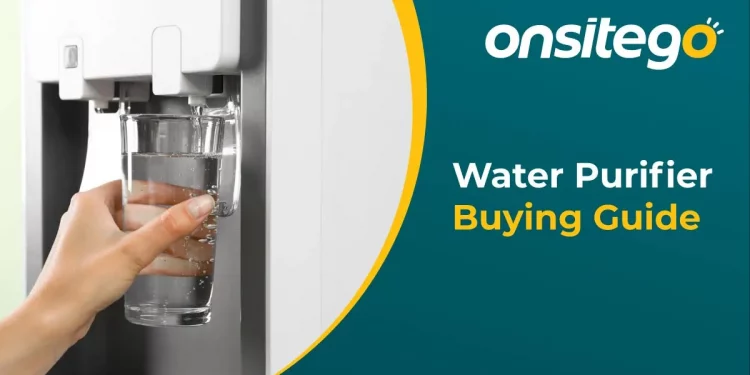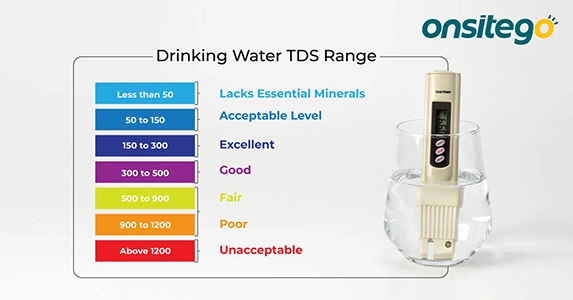Last Updated on September 3, 2024 by Rajendra Hiwale
In India, access to clean and safe drinking water is a pressing concern.
With water pollution on the rise, the need for a reliable water purifier has never been more critical.
But how do you navigate the myriad of options available in the market? How do you determine which type of water purifier is best for your home?
This comprehensive Water Purifier Buying Guide 2024 India aims to answer these questions and delve into the different types of water purifiers, their features, and how to choose the right one based on your water quality and family needs.
Whether you’re a first-time buyer or looking to upgrade your current system, this guide will provide you with the information you need to make an informed decision.
Understanding Water Quality and Contaminants in India
Water quality in India varies greatly from region to region and is influenced by factors such as the source of water, local infrastructure, and environmental conditions.
Common contaminants found in Indian water sources include bacteria and viruses, heavy metals like lead and arsenic, and dissolved impurities such as salts and nitrates.
Subscribe to Onsitego
Get the latest technology news, reviews, and opinions on tech products right into your inboxUnderstanding the quality of your water is the first step in choosing the right water purifier to address TDS levels effectively in RO water purifiers.
In the next section, we will explore the different types of water purifiers and how they tackle these contaminants, discussing the types of water purifiers and types of water purification methods to help you choose the best one for your needs.
Types of Water Purifiers: RO, UV, UF, and More
There are several types of water purifiers available in India, each with its unique purification method.
The most common types include RO (Reverse Osmosis) purifiers, UV (Ultraviolet) purifiers, and UF (Ultrafiltration) purifiers.
Each type has its advantages and limitations. For instance, while RO purifiers are effective against a wide range of contaminants, they may remove essential minerals from the water.
Understanding the functionality of different types of water purifiers and how they work will help you select the most suitable one based on your TDS levels.
Assessing Your Water: TDS and the Right Purifier for Your Home
Before buying a water purifier, it’s crucial to assess the quality of your water, including the Total Dissolved Solids (TDS) level.
Choosing a water purifier based on TDS levels helps in addressing the specific needs of your water source, ensuring efficient purification and optimum performance.
Key Features to Look for in a Water Purifier
When shopping for a water purifier, it’s essential to consider key features like storage capacity, TDS controller, and smart features that enhance the performance and longevity of the purifier.
Understanding how water purifiers work and the significance of these features will guide you in making an informed decision.
Maintenance and Longevity: Ensuring Your Purifier’s Performance
The performance of your water purifier is largely dependent on its maintenance. Regular cleaning and timely replacement of filters can ensure their longevity and optimal functioning.
Here are some maintenance tips to keep in mind:
- Regularly clean the exterior and storage tank of the purifier to prevent bacterial growth.
- Replace the filters as per the manufacturer’s guidelines. Delaying this can affect the quality of the purified water.
- Opt for water purifier service or water purifier amc (annual maintenance) contracts offered by many brands like Onsitego for hassle-free servicing.
Remember, a well-maintained water purifier not only provides safe water but also lasts longer, giving you value for your money.
Brand Reputation and Customer Reviews: Making the Right Choice
Brand reputation and customer reviews play a significant role in selecting a water purifier that meets your expectations.
Considering customer feedback and brand reputation will help you make an informed decision on the best water purifier for your home.
Cost Considerations: Price, Installation, and Ownership
Apart from the initial purchase price, it’s essential to consider installation charges, maintenance costs, and electricity consumption when evaluating the total cost of ownership of a water purifier.
Understanding the cost considerations and selecting a water purifier that fits your budget and requirements is crucial for a sustainable ownership experience.
Conclusion: Final Tips Before You Buy
Selecting the right water purifier involves considering TDS levels, water quality assessment, types of water purifiers, key features, maintenance, brand reputation, cost considerations, and sustainability factors.
By understanding how different types of water purifiers work and how to choose water purifier for your needs, you can make a well-informed decision that prioritizes your family’s health and the environment.
Happy shopping and stay hydrated with safe and clean drinking water!



Discussion about this post